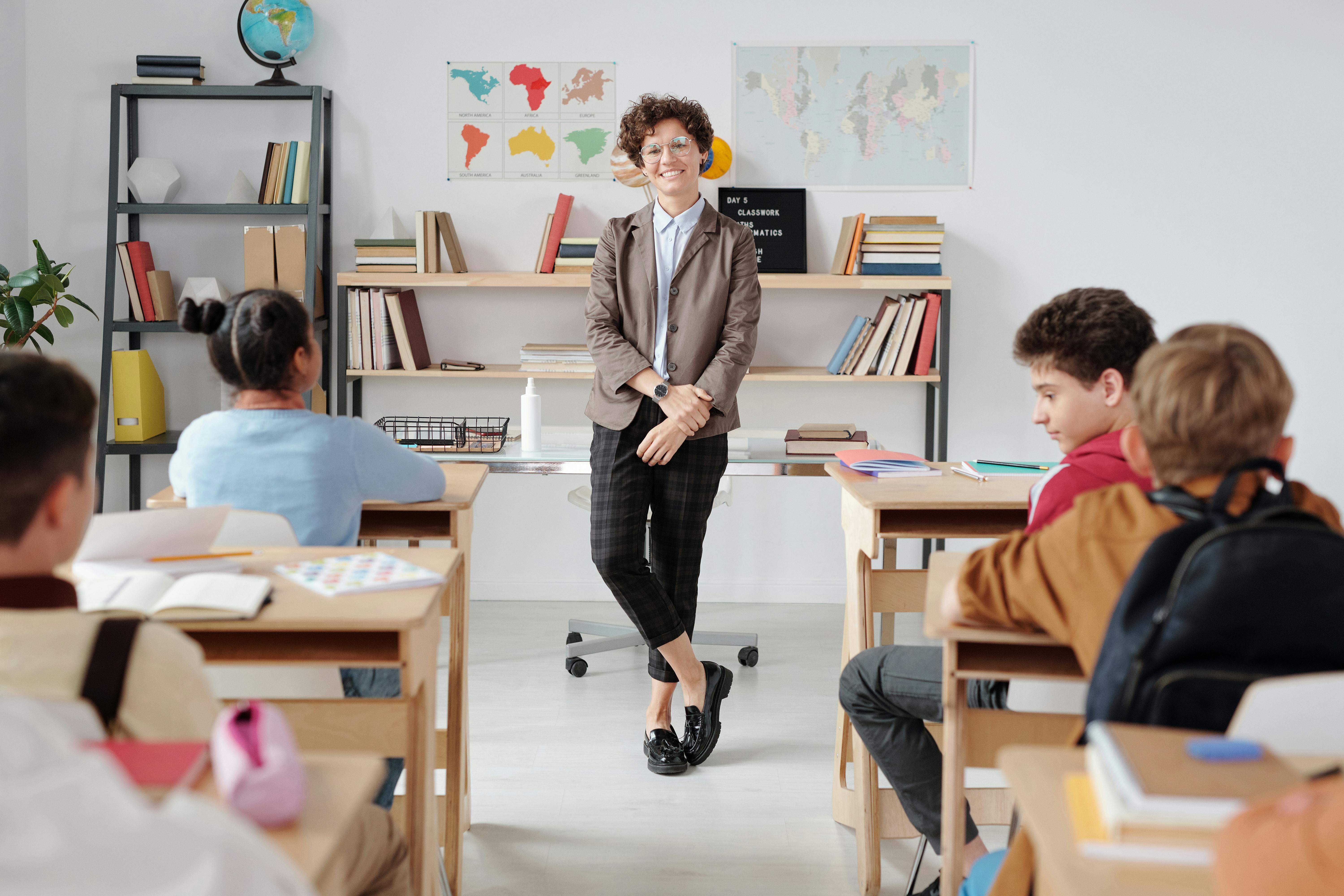Teaching is both an art and a science, requiring a unique blend of knowledge, strategies, and interpersonal skills.
Great teachers stand out for their subject mastery and for their ability to foster meaningful relationships with their students. They create environments that encourage learning, exploration, and resilience.
Understanding what these extraordinary educators do can inspire current and future teachers to refine their practice.
This exploration highlights the unique qualities and strategies that define great teaching. Their dedication goes beyond the classroom, as they continuously seek ways to connect lessons to real-world experiences and student interests.
They also adapt their teaching styles to meet the diverse learning needs of their students, ensuring that each one feels seen, supported, and capable of achieving success. By combining empathy with expertise, great teachers ignite curiosity and nurture a lifelong love of learning in every student they teach.
Building Strong Relationships
At the heart of great teaching lies the ability to build strong, trusting relationships with students. Teachers who prioritize these connections create a positive classroom environment where students feel safe, valued, and supported. Engaging with students on a personal level helps them to express their ideas and feelings, fostering open communication. Great teachers learn about their students’ interests, strengths, and challenges, allowing them to tailor instruction in ways that resonate.
This personalized approach boosts student confidence and enhances academic performance. By fostering an inclusive atmosphere, these teachers make every student feel important, which in turn cultivates a sense of belonging. Such relationships encourage students to take academic risks and embrace challenges, knowing they have the support of their teacher.

Engaging Instructional Strategies
Effective teaching involves the use of diverse instructional strategies that engage students actively. Great teachers employ methods that go beyond traditional lectures to incorporate hands-on activities, group work, and technology integration. They understand that students have different learning styles and adapt their techniques accordingly. Interactive discussions, project-based learning, and real-world applications enable students to connect classroom concepts to their lives.
Some teachers create learning stations that allow for varied, exploratory experiences. Using technology in teaching enhances engagement and prepares students for today’s digital world. Another vital aspect is the use of formative assessments, where teachers can gauge understanding and adjust instruction in real-time, ensuring that all students can keep pace. These approaches reflect a commitment to making learning exciting and relevant.
Continuous Professional Development
Great teachers understand that education is an ever-evolving field. They engage in continuous professional development, seeking opportunities to enhance their skills and knowledge. This growth mindset enables them to stay informed about the latest pedagogical techniques and educational research. Attending workshops, enrolling in advanced courses, and participating in educational networks allow teachers to share best practices and glean innovative ideas from peers.
Reflective practices, such as self-assessment and seeking feedback, empower them to understand their strengths and areas for growth. Many embrace mentorship roles, gaining insights from both experienced educators and newer teachers. In striving to improve their craft, they set a powerful example for their students. Committing to lifelong learning plays a crucial role in becoming a good teacher, ensuring they are well-equipped to guide and inspire the next generation. Embracing technology and digital tools enhances teaching effectiveness, allowing educators to create more engaging and personalized learning experiences. Continuous professional development fosters adaptability, ensuring teachers remain relevant and impactful in an ever-changing educational landscape.
Culturally Relevant Teaching
Recognizing the diverse backgrounds of students is crucial in effective teaching. Great educators adopt culturally relevant pedagogies to ensure every student feels represented and respected within the learning environment. Such practices involve integrating multicultural perspectives into curricula and acknowledging students’ cultural experiences. This approach validates different viewpoints, helping students to see their own cultural identities reflected in their learning.
Teachers can leverage literature, historical examples, and contemporary issues that resonate with their students. They encourage discussions around cultural responsibilities and the implications of systemic biases, preparing students to become informed citizens. By fostering a culturally responsive classroom, these teachers enhance student engagement and promote a deeper understanding of the world.
Encouraging a Growth Mindset
Inspiring a growth mindset in students can dramatically affect their academic journeys. Great teachers emphasize effort over inherent talent and encourage students to view challenges as opportunities for growth. They create a classroom culture that celebrates persistence and resilience. By setting high yet attainable expectations, they motivate students to push beyond their comfort zones.
Regular encouragement and constructive feedback help students recognize their progress and areas needing improvement. These teachers invite students to reflect on their learning processes, helping them understand that mistakes are part of their development. This reframing of setbacks as stepping stones cultivates a more resilient approach to education, leading to increased confidence and independent learning.
Effective Classroom Management
Classroom management is important for maintaining a productive learning environment. Great teachers implement strategies that foster respect and responsibility among students. They establish clear expectations, routines, and procedures from the outset, setting the stage for a harmonious classroom. Managing behavior positively equips students with the skills needed to collaborate and communicate effectively.
Involving students in the creation of classroom rules can enhance their sense of ownership and accountability. Effective teachers handle disruptions calmly and constructively, ensuring that all students understand the importance of maintaining a focused learning atmosphere. This approach sets a standard for appropriate behavior while promoting self-discipline and mutual respect.
Assessing and Adapting Instruction
Assessment plays a pivotal role in effective teaching practices. Great teachers rely on a variety of assessment methods to gauge student understanding. Through formative assessments, they receive instant feedback that informs instruction, allowing them to tailor lessons to meet student needs. Summative assessments provide insights over a longer period, enabling teachers to evaluate instructional effectiveness.
By analyzing assessment data, educators can identify trends and adjust their teaching methods accordingly. They encourage reflection by inviting students to assess their own learning, cultivating metacognitive skills. This ongoing cycle of assessment and adaptation helps ensure that every student achieves their potential.

Understanding what great teachers do differently reveals important qualities and practices that enhance educational experiences for students. From building strong relationships to embracing a growth mindset, these educators create lasting impacts that shape learners’ lives.







